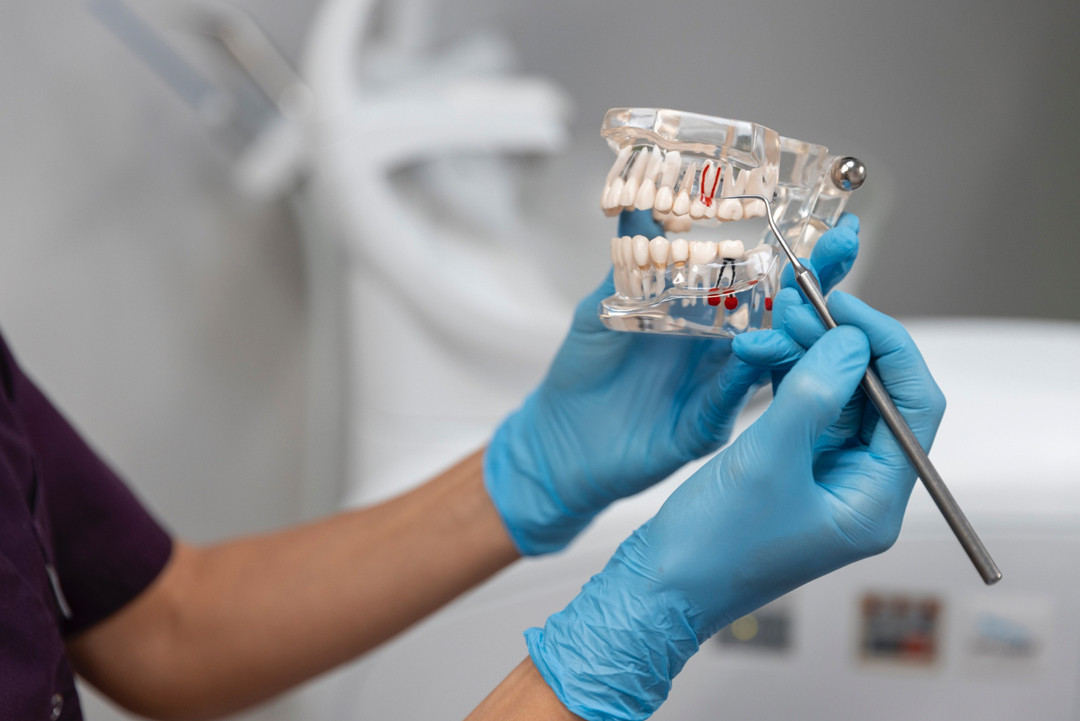What is Endodontics?
Endodontics is a specialized field of dentistry focusing on diagnosing, treating, and managing conditions affecting the dental pulp and tissues surrounding the roots of teeth. The term “endodontics” is derived from the Greek words endo (inside) and odont (tooth).
Endodontists are experts in preserving natural teeth by addressing issues such as:
- Infections or inflammation of the pulp.
- Damage from trauma or decay.
- Procedures like root canal therapy to treat severe infections while maintaining the tooth’s structure.
Endodontics also includes the treatment of dental trauma, endodontic surgery, and the whitening of teeth treated with root canals.
Role of an Endodontist
Endodontists are dental specialists with advanced training in treating complex dental issues related to the pulp and root tissues. They:
- Use advanced diagnostic tools, such as X-rays, to assess pulp conditions.
- Perform root canal therapy to remove infected pulp and prevent further damage.
- Conduct surgical interventions, including removing infected tissues or placing dental implants.
- Work to preserve natural teeth whenever possible, preventing complications associated with tooth loss.
Common Dental Issues Addressed by Endodontics
Endodontists treat a variety of conditions, including:
- Tooth Decay from Trauma or Injury: Untreated cavities can lead to infections reaching the root.
- Tooth Abscess: A pus-filled pocket caused by bacterial infections.
- Abnormal Tooth Development: Issues related to improper alignment or growth.
Standard Endodontic Procedures
Endodontists tailor treatments based on the extent of the condition. Common procedures include:
Root Canal Therapy
Root canal treatment involves removing infected or damaged pulp to preserve the tooth. This procedure is essential when:
- Teeth are severely infected.
- Abscesses are present.
- Damage results from trauma or decay.
Types of Root Canal Procedures
- Pulp Therapy: Treats mild pulp damage using antibiotics and restoration without removing the pulp.
- Pulpotomy: Removes only the infected pulp from the tooth’s crown, preserving the healthy portion.
- Pulpectomy: Removes the entire pulp from the root canal, disinfects the area, and seals the tooth.
All root canal procedures are performed under local anesthesia to ensure patient comfort.
What to Expect During and After Treatment
Procedure Overview
- Local anesthesia is administered for a pain-free experience.
- The infected pulp is removed, and the area is cleaned and disinfected.
- The tooth is sealed and covered with a protective material to prevent reinfection.
Recovery
- Mild discomfort or sensitivity is normal for a few days.
- Most patients can resume normal activities on the same day.
- Follow-up visits ensure proper healing and long-term success.
When to See an Endodontist
Prompt consultation with an endodontist is crucial if you experience:
- Persistent toothache or discomfort.
- Sensitivity to hot or cold foods.
- Swelling or inflammation around the tooth or jaw.
- Pain while chewing.
Delaying treatment may lead to worsening conditions, making it harder to preserve the natural tooth.
Endodontics: A Vital Aspect of Dental Health
Endodontists play a critical role in maintaining oral health by saving natural teeth and preventing complications. From routine root canals to complex endodontic surgeries, their expertise ensures effective and lasting dental care.


















